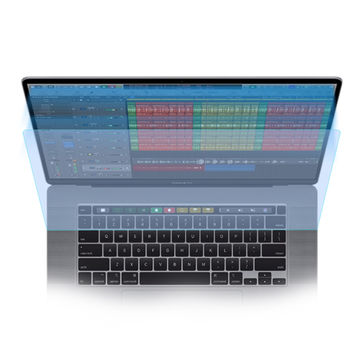
"Bright light sources can feel uncomfortable, especially if you have cataracts," Dr. Gardiner says one possible cause of this is the brightness or glare that comes from the electronic screen. The other main problem from staring at a screen too long is eyestrain. If you don't blink enough, your eyes dry out, causing blurry vision and discomfort. But you need to blink to re-establish the tear film on the eyes - a thin layer of liquid that protects the surface of the eye. The blink rate goes from 15 times a minute to five or seven times per minute," explains Dr. "When you look at a screen, you're so involved that you forget to blink. One is dry eyes, caused by a lack of blinking. About the causesĬomputer vision syndrome results from staring at a screen for long periods of time. Matthew Gardiner, an ophthalmologist with Harvard-affiliated Massachusetts Eye and Ear Infirmary. "It's most prevalent with computers, and typically occurs when looking at a screen at arm's length or closer," says Dr. Here's another reason to curb screen time: a problem called computer vision syndrome - an umbrella term for conditions that result from looking at a computer or smartphone screen. For example, more hours sitting at a computer or smartphone means fewer hours of being physically active, and looking at a computer screen at night can stimulate the brain and make it difficult to fall asleep. There are many reasons to restrict the amount of time you spend in front of an electronic screen. In short, this screen dimmer app did make a huge difference to the sleep quality and prevented those light responses that are found not to be helpful during evening hours as the mind and the body prepares to get ready for sleep.Looking at a screen too long may lead to computer vision syndrome. They were also reported to have higher melatonin levels ranging from ninety to five minutes prior to sleeping. They helped them to have good sleep at night without much interruption in between.
#LAPTOP SCREEN FILTER EYE SOFTWARE#
The yellow filter glasses and apps like Iris software were found to be highly beneficial. They also maintained dairies of the duration of wearing of the glasses and time spent with non-LED and LED devices including sleep-wake log. They used devices that had blue light blocker glasses during the evenings until bedtime every evening. Those same people were also devoid of going out during the evenings or consuming caffeine drinks. For about a week, they maintained regular sleep schedule at their home. It is found to block natural evening rise of hormone melatonin which promotes sleepiness.īlue light exposure does keep the brain activated and alert at a time when it is to slow down to get into sleep mode.įor experiment purpose, blue blocker, orange-tinted glasses were used to filter out short light wavelengths in the visible spectrum’s blue portion.ġ3 healthy boys were recruited between the ages of 15 & 17. The LED light screens, as suggested by Wikipedia, do emit short wavelength light.

Teenagers are already found to stay awake for late hours.Īs a result, requiring to wake up very early for studies is likely to develop a chronic sleep debt.Īs a result, this affects sharply the teens’ focus and moods. Using yellow filter for computer screen will prove to be more than beneficial for the eyes and overall health. The reason is that light tends to impact the circadian rhythms along with the sleep-wake cycles. It can become difficult to wake up the next morning according to studies. Viewing computer or phone screens when in bed is linked to insomnia. There is where the biological clock, as well as its related arousal promotion, is known to its greatest sensitivity.

This is because, it tends to involve light exposure, specifically in the blue wavelength range. Viewing these screens during evening time will only make the teenagers be awake at night and not get good quality sleep. Screen light tends to affect the circadian physiology, which is quite high in these devices and are used very close to the eyes. LED screens are being used widely in smart phones, computer monitors, TVs and tablets. They also get sleepy during bedtime which is essential for better health. Teenagers using computers and various types of digital devices when using apps like Iris software are found to be much more relaxed when using these devices at night for a good amount of time. However, blocking blue wavelength is likely to help restore normal sleep at night time, as revealed by studies. Televisions and mobile phones are likely to emit blue and yellow lights that are considered by medical experts to be harmful to the eyes and overall eye health.īlue light that radiates from such devices is likely to suppress natural mechanism which helps people to fall asleep during the night. Blue light blocking apps can help promote better sleep after screen-time


 0 kommentar(er)
0 kommentar(er)
